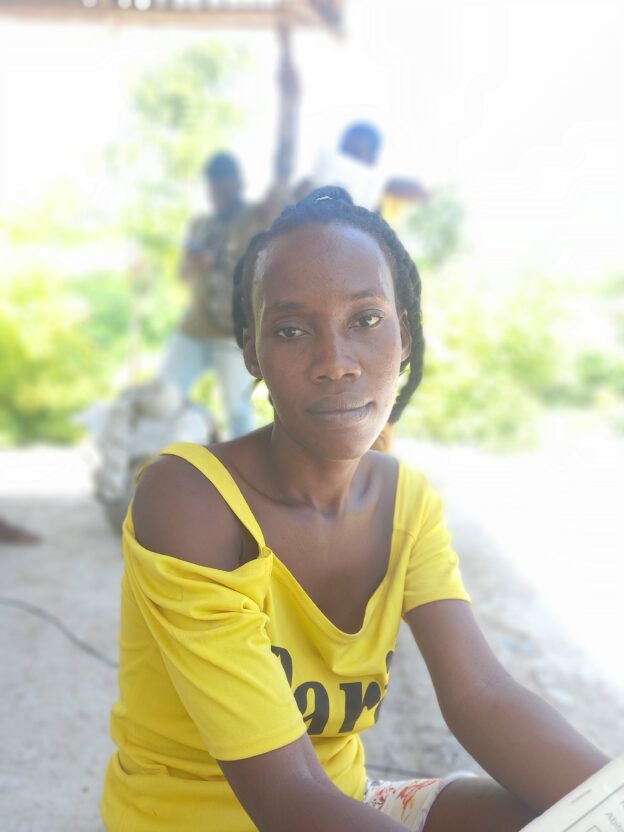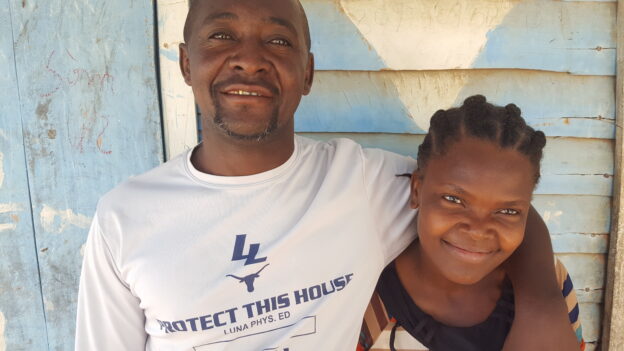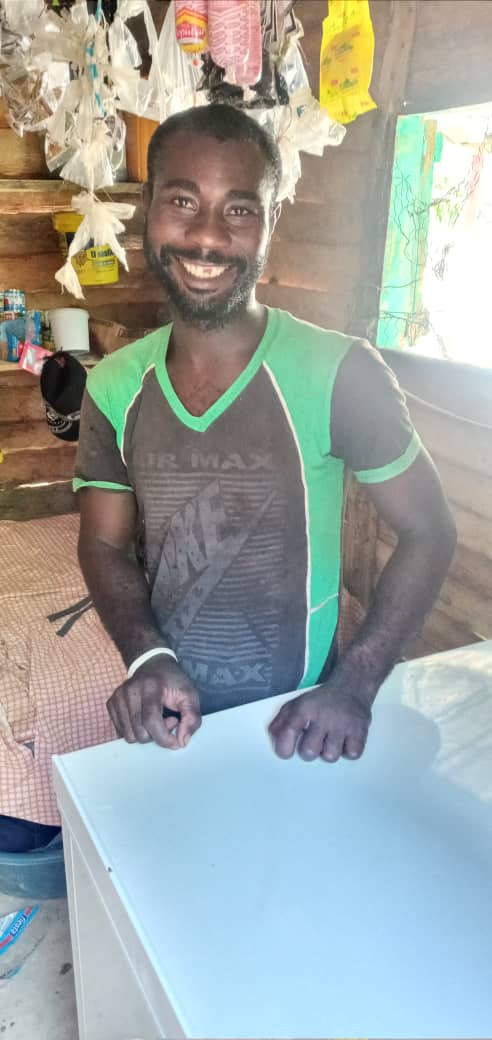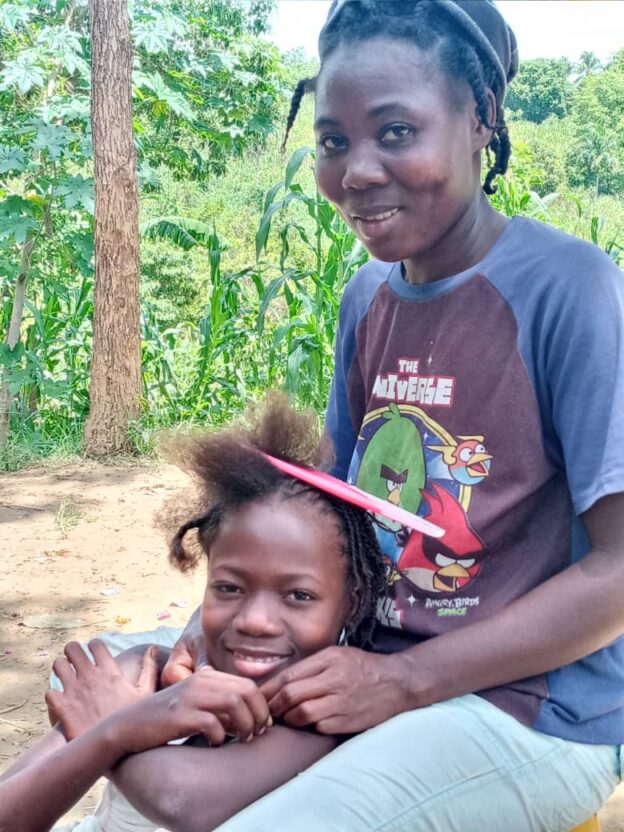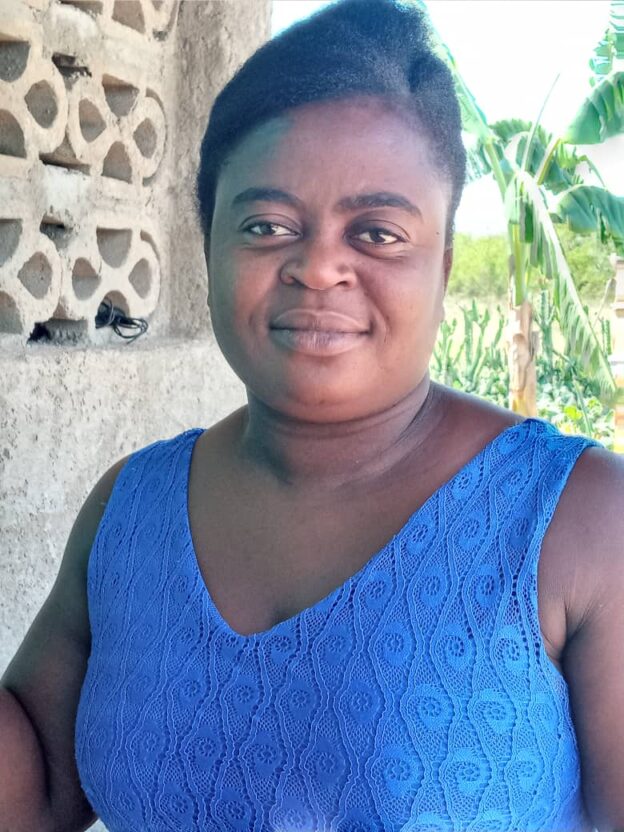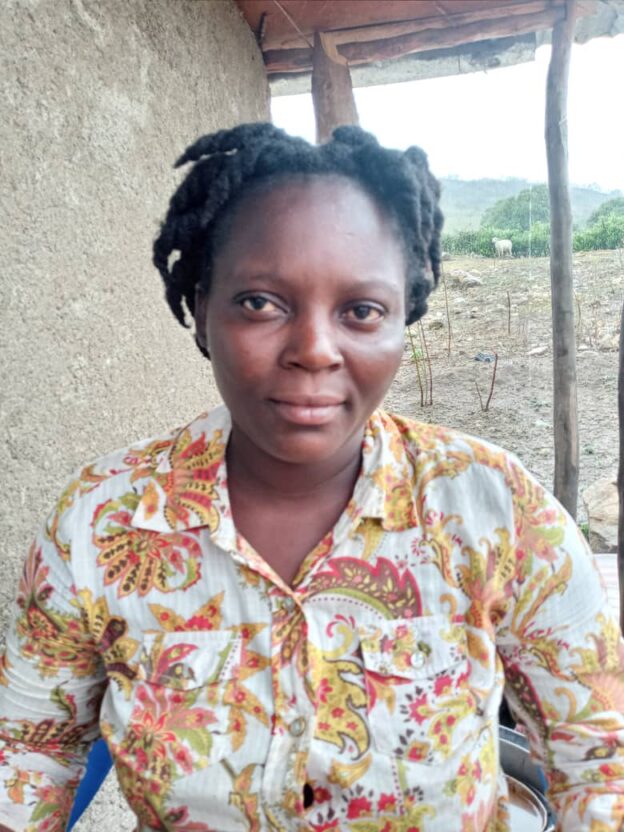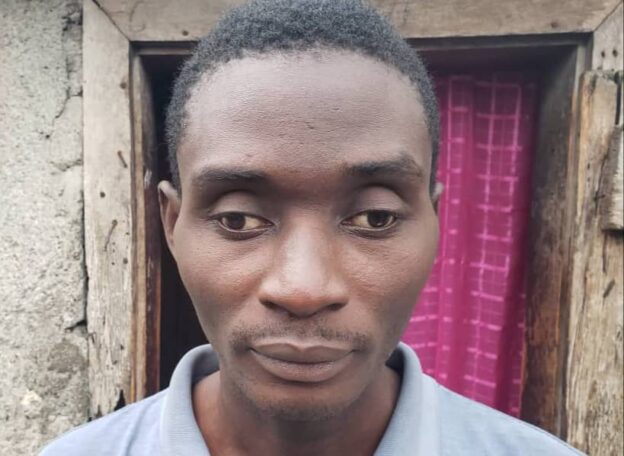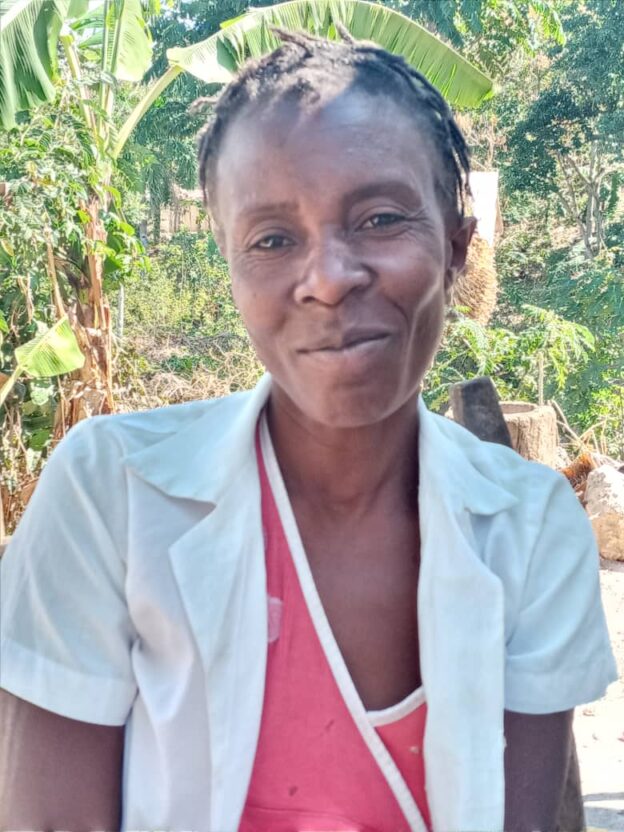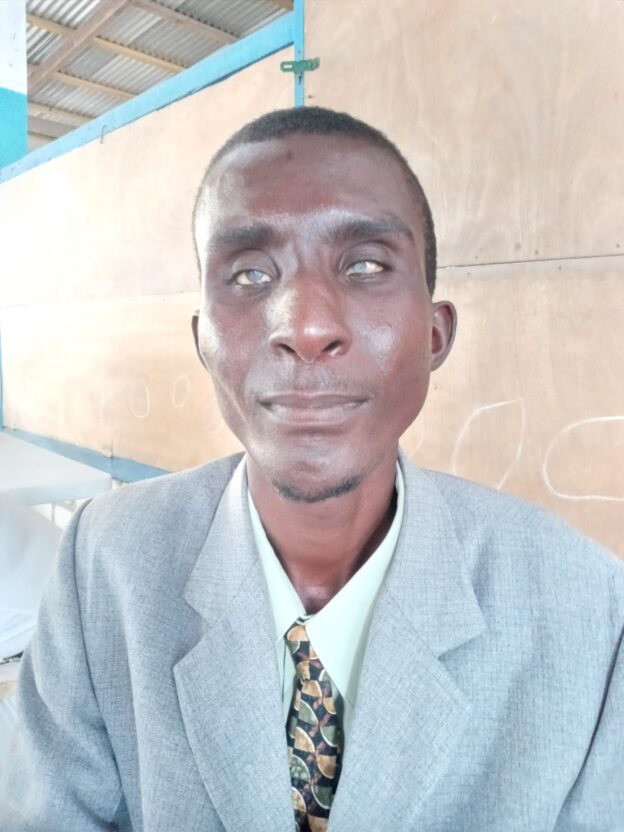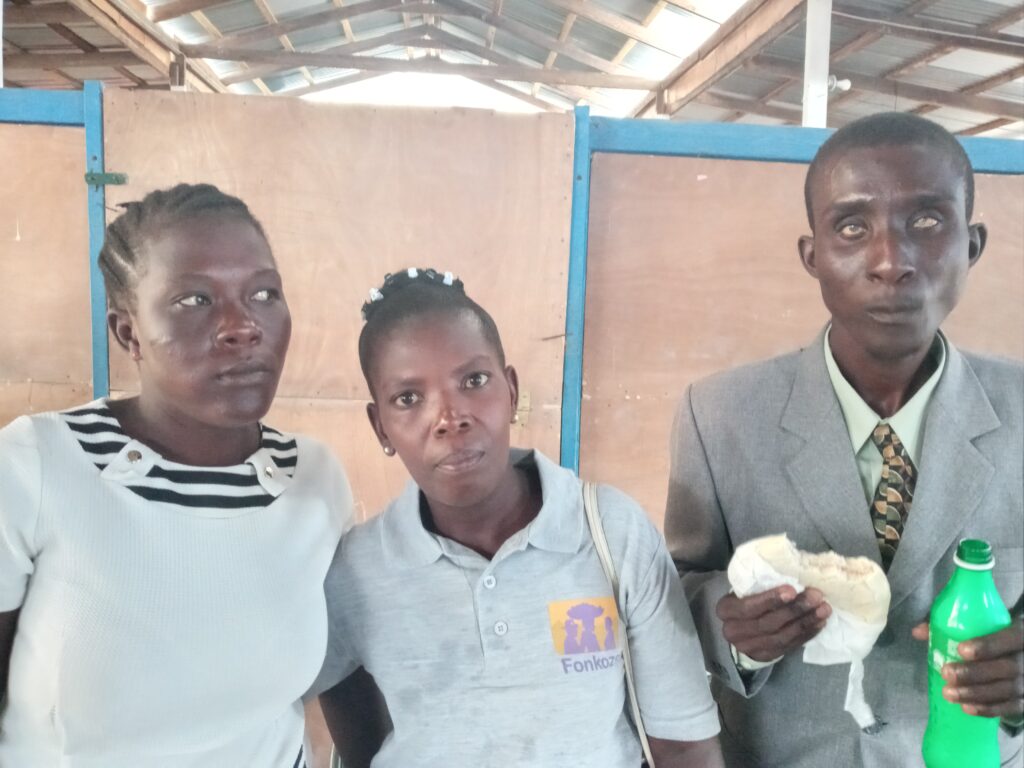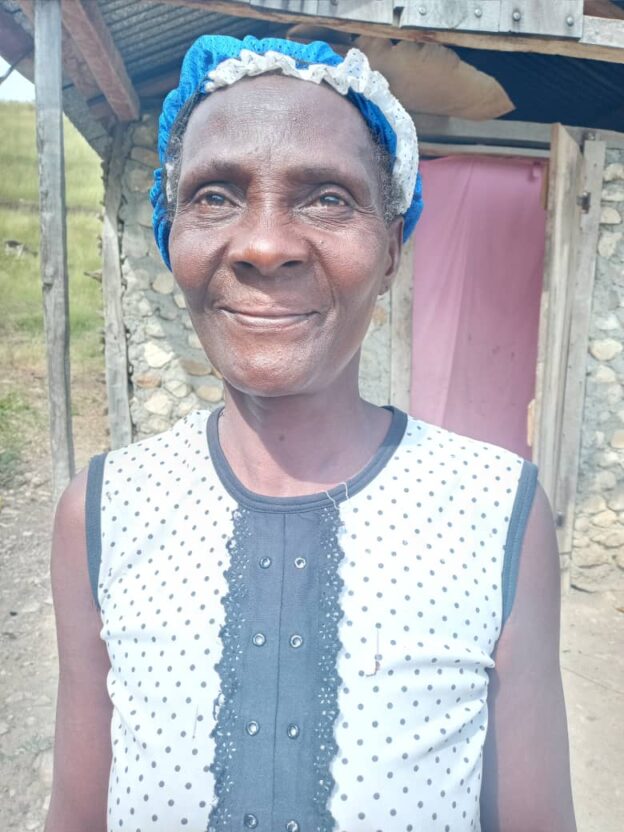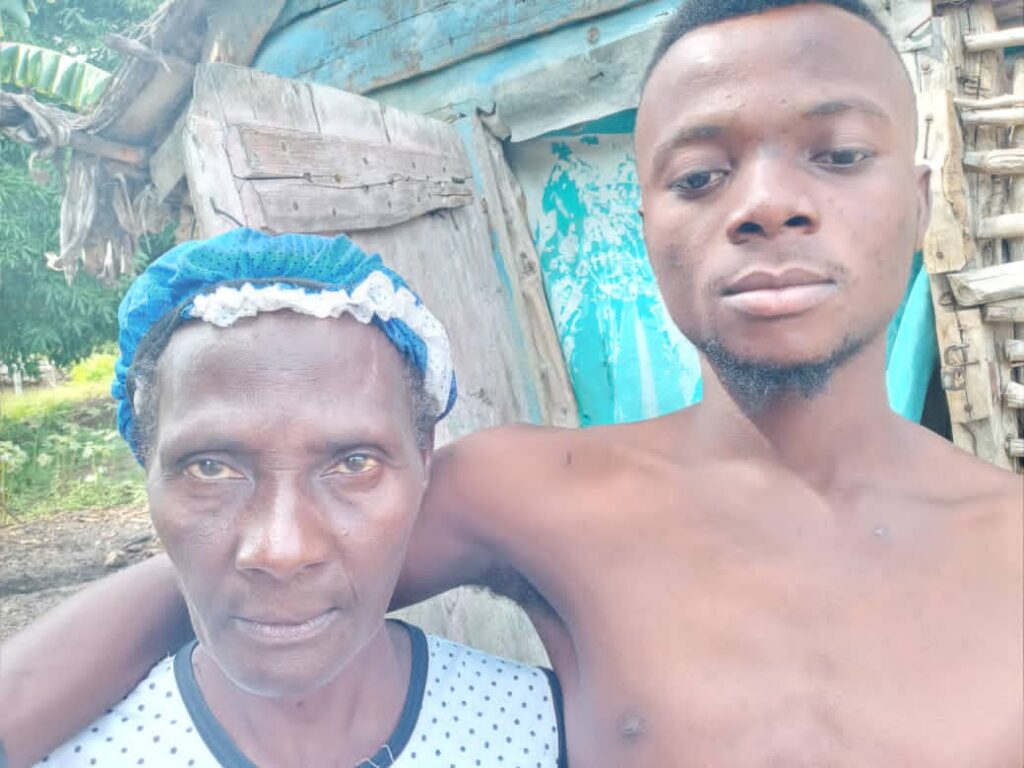Manise lives in Laflòt, not far from the main road through Dezam, just a short walk from the border with Lachapèl, farther to the east. She hasn’t always lived there. She moved a couple of times while she was growing up.
She spent her earliest years in Palma, a market town on the upper end of the island of Lagonav. Her mother was from Dezam, but her father was from the island. The two met at the market in the small port city of Arkaye. When her father passed away, Manise’s mother struggled to care for her. She gave the girl to the father’s cousin, who lived in the nearby city of Ansagale, because she could not keep Manise fed. Manise grew up in the cousin’s home.
Manise’s mother then returned to Dezam, but when she became sick and required someone’s care, Manise moved to Dezam to be with her. She already had a child by then, and had to leave the child with the father, on Lagonav. But she didn’t feel that she had a choice. Back in Dezam, she soon had another child. But she also met her eventual partner. “He saw me and he liked me. And I like the way he treats my boy as his own child.”
The couple got by, but things were hard. Manise worked as a second-grade teacher, making 3,000 gourds per month, which is now less than $30. When, that is, the school was able to pay her at all. Her partner did odd jobs. Anything he could find. Despite the couple’s efforts, the small family frequently went hungry. Manise could not afford to send her young boy to school.
Manise chose goats and small commerce as the activities the CLM program would transfer to her, but after she received her two goats she and her case manager Odiel realized there was a problem. Manise was nursing a baby, so she and Odiel decided it was no time for her to be managing a business that would force her out of her home. They took money that they had set aside to purchase merchandise to buy a third goat instead.
The third goat didn’t end up getting Manise anywhere. Neighbors jealous of her participation in CLM killed it. But her other goats prospered. She would have had eight by graduation if she hadn’t already sold two to manage expenses. Four of her six remaining animals are pregnant. Before graduation, she had added two turkeys, which she bought out of savings in her VSLA, and a large pig. She had also started a very small commerce, selling snacks like crackers and candy out of her home, something she could do while managing the couple’s infant. At graduation, our evaluators assessed her productive assets at over $700, more than three times what she needed to graduate. Shortly after graduation, her pig succumbed to fever, but she purchased a small replacement almost immediately.
Manise has progressed in another way as well. She followed advice she received at agroforestry trainings that the CLM held in Dezam. She has been planting trees in the same fields in which she grows her usual crops: coconuts, mango, papaya, lime, and cherry. But also trees that bear no fruit of any value, but which leave her leafy, compostable that she can use to build up her garden’s ground soil. Though her neighborhood has been dry recently, her trees are starting to grow.
Despite her progress, Manise still struggles. Her baby has been developing slowly. It is early still, but he seems to be falling behind. He’s 18 months old, and he cannot yet support the weight of his head with his neck. We plan to help her access the services the boy might need in the next weeks. If we don’t, she is likely to burn through the wealth she has accumulated doing what she can for the boy.
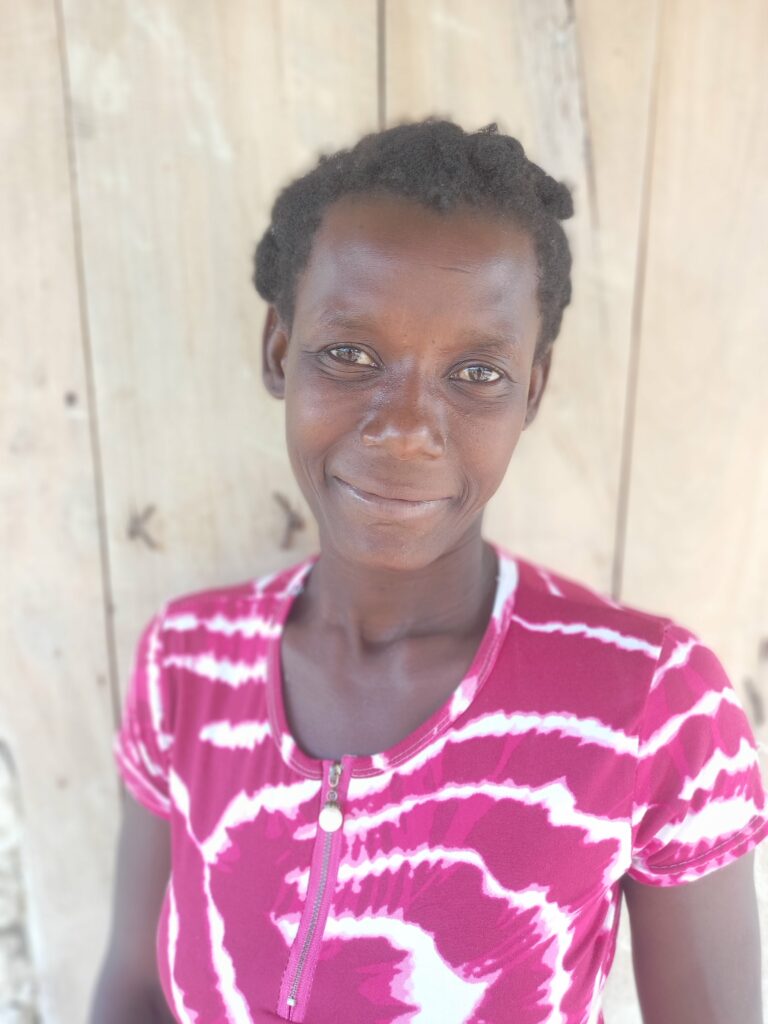
Suzette lives in Lanbè, a neighborhood in eastern Dezam. Before she joined the program, she and her children were living with her mother. The arrangement led to conflict. Rather than live with constant arguments, Suzette chose to move out. She and her partner, Davilmar, could afford very little. Just a rented room that was soaked through with every rain, but it gave her some distance from her family.
She had no source of income herself when she joined the program. Davilmar was responsible for everything. He talked to a cousin of his who sold lottery numbers. Such people earn a small percentage on every ticket they sell. People are not inclined to do it if they can find something else. It is very little money. But Davimar needed money, and his cousin could see that. So they agreed that Davilmar would take over. “He works hard, and will do whatever he can,” Suzette says. Davilmar’s income meant that they had at least something to eat most of the time. They could not afford, however, to send the kids to school.
When she was invited to join CLM, Suzette figured that she and Davilmar had to talk. “When you are with someone, you shouldn’t make big decisions by yourself.” The couple was afraid to join the program. “People in the neighborhood were making up all kinds of lies about it. They said it was the devil’s work. We talked and talked, but we finally decided that we didn’t really have a choice. We needed the help.”
Suzette asked the CLM team to give her goats to get her started, and she received three. She cared for them, and the three turned into seven, but she sold a small male to buy school uniforms for her kids. She’s added other livestock. She owns turkeys and chickens, and a large and growing pig.
She started saving money in her VSLA. She and Davilmar really pressure themselves to save 250 gourds every week. Suzette used a 7,500-gourd loan from the VSLA to start a business. She would buy beans in the local market, and bring them for sale to other markets just down the road. When bean prices rose too high, she switched from beans to eggs. She now buys six cases of eggs each week at one market and sells them at two others. She can make enough to keep her family fed and continue saving. “I want to make my business bigger. I didn’t want to sell a goat to pay for school, but I had no choice. You can’t not send your kids. Next year, I want my business to be able to pay.”
